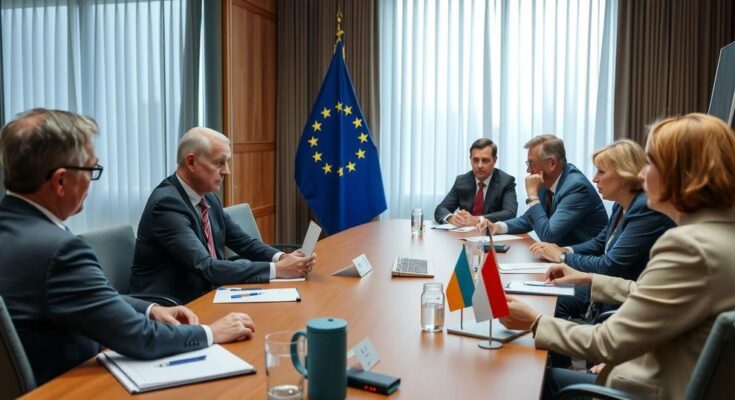The EU’s ethics watchdog has highlighted concerns regarding the transparency of a migration deal with Tunisia, which is associated with serious human rights violations against migrants. Despite regulations mandating respect for fundamental rights, reports detail severe abuses, prompting calls for greater oversight and clarity on funding conditions from the European Commission.
The European Union’s ethics watchdog has raised concerns about the lack of transparency regarding human rights risks linked to a migration agreement with Tunisia. This deal, initiated in 2023, involves significant funding from the EU in return for Tunisia’s assistance in reducing migrant boat crossings to Europe. However, this arrangement has reportedly resulted in severe abuses against migrants, including physical and sexual violence perpetrated by Tunisian authorities. Despite the EU’s regulations that mandate respect for fundamental rights, shocking reports have surfaced detailing egregious mistreatment of migrants. The European Commission has not disclosed a risk evaluation conducted prior to the agreement, nor have they clarified the conditions under which funding could be halted. Ombudsman Emily O’Reilly highlighted the inadequacy of publicly available information, raising alarms about the implications for human rights amid escalating migration issues in the region. The funding provided by the EU to Tunisia has reached €255 million, aimed at combating human trafficking and enhancing border control efforts. While the deal appears effective in decreasing boat crossings, it has drawn criticism from human rights organizations. Reports indicate that Tunisian authorities have committed widespread acts of violence against migrants, showing the urgent need for systematic oversight. O’Reilly criticized the lack of a comprehensive human rights impact assessment before finalizing the deal, suggesting such evaluations are crucial. Although a risk management exercise was conducted, the results were not shared with the public, prompting calls for transparency. She emphasized the importance of clarity regarding the circumstances that could lead to the suspension of EU funds and proposed implementing complaint mechanisms via NGOs and international organizations to address allegations of abuse. As the EU increasingly leans on collaborations with nations with questionable human rights records, the ombudsman’s findings serve as a crucial reminder of the potential moral implications. There is an urgent need for the EU to maintain vigilance over these agreements to ensure the respect and protection of fundamental human rights.
The European Union has made significant strides in addressing the wave of migration from North Africa, specifically with Tunisia, by forging a deal focused on curbing irregular crossings to Europe. However, the ethical implications of this agreement have surfaced amid allegations of severe human rights violations against migrants in Tunisia. This backdrop of rising migration alongside recent political shifts in Europe makes the EU’s commitments to human rights increasingly critical.
The EU faces growing pressure to ensure transparency and uphold human rights standards amid its migration management strategies with Tunisia. As evidence of systematic abuse emerges, the need for accountability and better-defined funding protocols becomes urgent. The ombudsman’s recommendations highlight a crucial path forward, stressing the importance of establishing robust safeguards and mechanisms for reporting abuses to promote humane treatment of migrants.
Original Source: english.alarabiya.net



